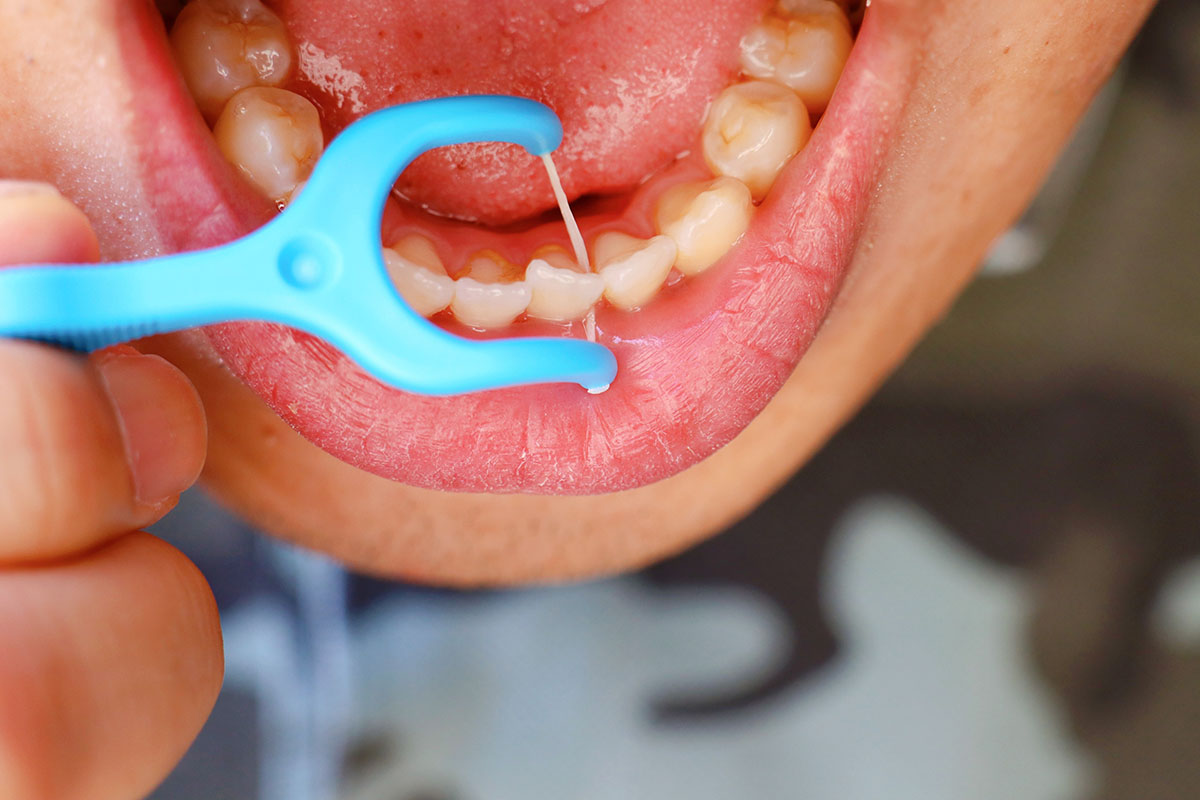
Posted on November 18, 2024
Flossing is one of the most essential habits for a clean mouth, but have you ever thought about smelling your floss after use? It may sound strange, but this tip is gaining popularity on social media, and it reveals how a quick sniff can reveal hidden signs of gum disease. While it might be a little gross, smelling your dental floss can provide valuable insights into your oral health, help identify potential issues early, and encourage more consistent dental care.
Why Does My Floss Smell Bad?
Several factors can contribute to an unpleasant odour on your dental floss:
- Trapped Food Particles: As you floss, you dislodge food particles that have become stuck between your teeth. These particles can decompose and release odorous compounds.
- Bacteria and Plaque Buildup: Your mouth naturally contains bacteria. When these bacteria accumulate and form plaque on your teeth and along the gum line, they can produce volatile sulfur compounds (VSCs), which are often responsible for bad smells. Flossing removes this bacteria and plaque, and the smell on the floss is a result of this removal.
- Volatile Sulfur Compounds (VSCs): These compounds are a primary cause of bad breath and can also be present on your floss after cleaning between your teeth. They are a byproduct of bacterial metabolism.
- Potential Gum Disease or Infection: A persistent and particularly foul odour on your floss could be a sign of early gum disease (gingivitis) or even a more advanced infection (periodontitis). In these cases, the bacteria present can be more aggressive and produce stronger, unpleasant smells.
What Your Floss Smell Means for Your Gums
When you floss, you’re removing food particles, plaque, and bacteria from tight spaces between your teeth—areas your toothbrush doesn’t fully reach. If you notice an unpleasant smell on your floss, it’s likely due to bacteria trapped between the teeth and gums. Dental professionals refer to this odour as “perio breath” because it’s associated with periodontal (gum) disease.
The buildup of plaque and bacteria can cause inflammation, leading to gum disease, which can manifest as bleeding, swollen gums, and even bad breath. A quick floss check may be a helpful reminder to improve your oral hygiene or to book a dental appointment, as consistent odour might indicate plaque buildup or early-stage gum disease.
Gum Disease and Its Health Impacts
Gum disease starts with gingivitis, a mild and reversible form of gum inflammation. Gingivitis can be effectively managed with regular flossing and cleanings, but if left untreated, it may progress into periodontitis, a more advanced condition. Periodontitis is not reversible and can lead to serious health issues, impacting not only your mouth but your overall well-being. Studies have linked gum disease to other health conditions, such as heart disease, diabetes, stroke, dementia, and pregnancy complications. Regularly checking for signs of gum disease, like an unpleasant smell on your floss, can prompt you to take early action and prevent these serious health risks.
Flossing Tips and Tools to Consider
There are many different brands of floss and finding one that works for you can make a big difference. If you need help choosing one, then speak to your dental professional. For those with deeper gum pockets, a water flosser, like Waterpik, can reach areas floss alone cannot, effectively removing bacteria up to 6 millimetres below the gum line.
Time for a Professional Check-Up? Contact Stoney Creek Dental Today!
While sniffing your floss is a helpful self-check, it doesn’t replace professional care. A dentist can provide a thorough assessment, address signs of gum disease, and give personalized care recommendations. If it’s been a while since your last check-up or you notice unusual symptoms like odour, bleeding, or gum swelling, it’s wise to book an appointment to stay proactive about your dental health.
For expert advice and top-quality care, make an appointment at Stoney Creek Dental. We’re here to help you keep your smile fresh, healthy, and confident.
